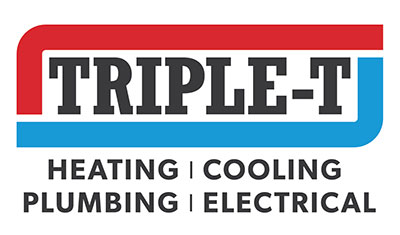How to Determine Your Air Conditioner’s Age
Are you wondering about the age of your air conditioner? If you think it’s nearing the end of its lifespan, knowing you have an old air conditioner can help you make informed decisions about when to repair or replace it. Find out more here, including how to determine your air conditioner’s age.
How Long Do AC Units Last?
The average lifespan of an air conditioning system in Utah’s climate is 10 to 15 years, but various factors can affect this. Well-maintained units that receive annual service are more likely to exceed the expected lifespan. On the other hand, ACs that are used extensively or installed in harsh climates may not reach their full potential.
The installation quality also plays a role, with proper airflow, sizing, and refrigerant charge promoting optimal performance and longevity. In addition, technological advances and improved efficiency standards make older units obsolete faster, even if they’re still functional.

Why Knowing Your AC Unit’s Age is Important
Beyond merely satisfying your curiosity, you may want to know the age of your air conditioner for several reasons, including:
- Budgeting purposes: Knowing your unit may need to be replaced soon helps you plan for this future investment, allowing you to set aside funds for a new system ahead of time so the expense doesn’t sneak up on you.
- Energy efficiency: Older units don’t have the same advanced technology as newer systems, making them inherently less efficient. They also no longer perform at their peak when they’re several years old, furthering the efficiency gap. If you’re interested in lowering your energy bills, learning that your system is outdated may motivate you to upgrade to a more energy-efficient model sooner rather than later.
- Repair vs. replacement decisions: When faced with a high AC repair cost, you must decide whether it’s more economical to repair or replace the unit. Knowing its age helps you make an informed decision.
- Warranty considerations: The age of your AC unit reveals whether specific components are still under warranty. If so, you’ll certainly want to take advantage of this to make repairs more affordable.
- Maintenance planning: Older units may require more frequent maintenance or specific care to extend their lifespan as much as possible.
How to Look Up Your Air Conditioner’s Age
Learning the age of your AC unit is straightforward if you know where to look:
- Verify the installation date: If possible, access the unit’s installation documents or ask the installer. This date directly indicates how old your air conditioning system is because contractors usually install air conditioners the same year they’re manufactured.
- Check the condenser nameplate: All air conditioners have a metal plate on the outdoor unit that includes vital information about the system, such as the manufacturing date. Your AC unit’s “birthday” might be listed as the “MFR Date.” If you find it, that immediately tells you the equipment’s age.
- Look up the manufacturer’s serial number: If you can’t find the manufacturing date on the outdoor unit, head inside and check the blower compartment’s product label. You should find the serial number there, which often starts with four digits representing the week and year of manufacture. For example, a Carrier AC serial number might be 4605E78962, indicating the unit was manufactured in the 46th week of 2005, or November 2005. Each manufacturer has its own system, so you’ll need to check their specific decoding method.
Signs of an Old Air Conditioner
Knowing your air conditioner is aging can help you act before it fails. Here are the signs to look for:
- Inefficient cooling: An aging air conditioner may lose the ability to cool your home effectively. This inefficiency indicates poor heat exchange or a low refrigerant charge, possibly stemming from component wear and tear or a refrigerant leak. You might experience uneven temperatures if the blower motor is failing, or your utility bills might rise as the system uses more energy to achieve the desired results.
- Odd noises: Banging, rattling, or clanking usually points to mechanical issues, possibly loose or worn-out parts inside the unit. These noises signal that the air conditioner requires immediate attention to prevent more significant damage.
- Frequent repairs: If you find yourself scheduling repairs multiple times in a single season, it’s clear your air conditioner is on its last leg. Regular breakdowns indicate systemic issues within the unit, pointing toward the end of its operational lifespan and the need for a replacement.
- Poor air quality: Increased dust or humidity levels may point to an aging air conditioner. Older units may not filter or dehumidify the air as effectively as they used to, leading to poor indoor air quality.
- Frequent cycling: If your air conditioner turns on and off frequently, it could be overheating or struggling to maintain the desired temperature. Such short cycling wears out the compressor and other parts faster, so don’t ignore this cry for help.
- Leaking or excess moisture: While some condensation is normal, excessive moisture around your AC unit indicates a problem. Older units are more likely to have clogged condensate drains or refrigerant leaks, both of which require attention.
Schedule AC Services with Triple T
Triple T Heating, Cooling, Plumbing & Electrical has provided expert cooling services since 1974. As a family-run business that values honesty, integrity, and respect, we’re ready to handle any HVAC problem. Our licensed, bonded, and insured technicians offer fast, efficient services without sacrificing quality. If you’re facing decisions about repairing or replacing your aging AC unit, please contact us at 801-798-7711 if you live in Utah County or 435-275-4011 if you’re a Washington County resident.


